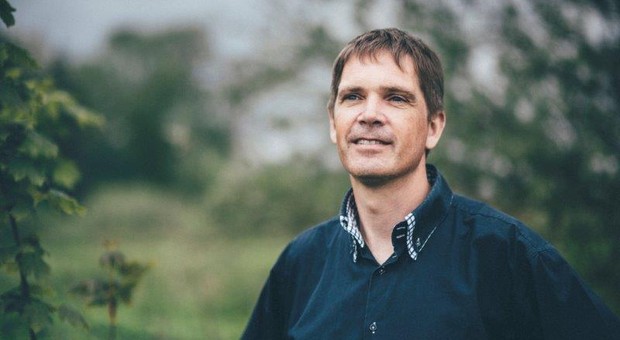The battle for a sustainable, bio-based future is on. Last week, 200 prominent researchers from around the world convened at Favrholm in Hillerød to discuss how microorganisms can help us towards a more sustainable future. One of the speakers was Professor Jack Pronk, who leads the Industrial Microbiology (IMB) section at the Delft University of Technology in the Netherlands.
“We seek to understand how micro-organisms perform in existing and novel industrial processes and, based on this understanding, to improve their performance and design new microbial processes,” Jack Pronk explains.
Most biofuels are made from plant materials. The main biofuel on the U.S. market is corn ethanol, but making ever more biofuels from only corn starch can lead to a tug of war between food and fuel sources, as well as other environmental and economic challenges.
“Biofuels made from agricultural residues, such as for example from corn stover – the stalks and leaves of corn plants – are promising renewable energy sources. They reduce or avoid food vs. fuel problems, as these residues cannot be used for food production and there are a lot of them around. In this way, fuels are essentially made from waste streams, which would otherwise be discarded. We thus create a better balance,” as Jack Pronk describes it.
Jack Pronk’s group mainly uses the yeast Saccharomyces as a microbial production platform. This yeast is renowned for the high rates at which it converts sugars into ethanol and CO2. Its robustness under industrial process conditions and its accessibility to the fast-growing toolbox of synthetic biology make it an attractive platform for metabolic engineering efforts for production of bio-based fuels and chemicals.
A COLLABORATIVE BALANCE
Research in Jack Pronk’s group on new concepts for yeast-based production of biofuels from agricultural residues, has resulted in quite a few patents. These have been commercialized by Dutch chemical company DSM, a longstanding industrial partner of Jack Pronk’s academic research. Last year was a special one for the Delft yeast researchers, as it saw the full-scale application of their results in two brand new plants, each with a capacity of up to 100 million liters of ethanol per year. One, in Emmetsburg (Iowa, USA) uses corn stover as a feedstock, the other, in Alagaos (Brazil) runs on bagasse, a residue of cane sugar production.
“As an academic scientist, I find it stimulating to work with companies. When both parties see the advantage of combining the industrial drive to ‘get things done’ with the academic urge to ‘understand how it works’ (or does not work at all), beautiful things can happen. So even though collaboration between universities and companies can occasionally be challenging, I find it well worth the effort and continue to learn a lot from my industrial colleagues.” Jack Pronk explains.
Together with other industrial and academic researchers, including leading scientists from the NNF Centre for Biosustainability, Jack Pronk recently published a correspondence in Nature Biotechnology. In this paper, which was inspired by a workshop at the 2013 Copenhagen Bioscience Conference, they discuss possibilities and pitfalls of academic-industry collaborations in metabolic and biochemical engineering.
“We discuss four different modes of collaboration between academia and industry—consulting, contract research, bilateral partnerships and public-private partnerships (PPPs). All models have their pros and cons for each of the parties. Choosing the best option requires a clear view on your own objectives and honest, open communication with the envisaged partner,” Jack Pronk underlines.
According to Jack Pronk, any academic-industrial collaboration should start by acknowledging and even cherishing that industry and academia have different primary objectives. Academia seeks to educate and perform ground-breaking fundamental research; industry needs to generate profit for shareholders through innovation and practical use of technologies.
“Failure to recognize and accommodate these different objectives will cause friction and waste of time. Ultimately, it can even lead to failure and cynicism about further collaboration. Getting it right is a matter of openly discussing each other’s priorities – also when those change during the course of collaboration. I start sounding like a marriage counsellor now but, again, it is really a matter of finding the right balance,” Jack Pronk stresses.
A WELL-BALANCED FORUM
Balance is also a keyword, when Jack Pronk talks about the scientific programme that attracted him to the 2015 Copenhagen Bioscience Conference, after already giving a talk in the 2013 edition. In fact, already looking forward to listening to presentations by his colleagues, he was more than happy to step in when one of the speakers in the original line-up had to cancel.
“These conferences bring together some of the world’s top researchers and young talent to discuss the latest breakthroughs and hottest topics in a fast-moving field. Moreover, the organizers manage to schedule lectures on exciting subjects that are slightly off the ‘beaten path’. For example, I tremendously enjoyed the presentation by Prof. Derek Lovley on microbial electrosynthesis, a fascinating new approach to produce chemicals from electricity and CO2”, Jack Pronk states.
Instead of aiming for a huge meeting with, say, 1000 researchers, the organisers of the Copenhagen Bioscience conference have chosen to invite only 200 researchers for the event. Jack Pronk stresses the importance of this decision. “Together with the unique facilities and atmosphere at Favrholm, the compact size of these meetings facilitates free discussion between all participants: experienced scientists from academia or industry, postdocs and PhD students. At Favrholm, you get to really meet colleagues, exchange ideas and start new collaborations that may last for years.”
But will he be back in 2017?
“Given the chance, I’ll say yes immediately. In my opinion, this is the best conference on Biosustainability”, Jack Pronk ends.








